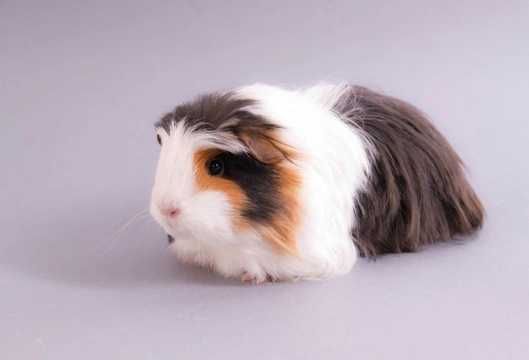
How to Protect Guinea Pigs From Parasites: A Complete Guide
Parasites can cause significant discomfort and health risks to guinea pigs if left untreated. While worm infestations in guinea pigs are comparatively rare, they can still suffer from both internal and external parasites. This comprehensive guide will help you understand how to protect your guinea pigs from parasites, identify symptoms early, and take the right steps to keep them healthy and happy.
1. Understanding Parasites in Guinea Pigs
Guinea pigs are susceptible to two main types of parasites: endoparasites, which live inside the body (such as worms), and ectoparasites, which live externally, including lice and mites. These parasites are usually transmitted through contaminated food, bedding, or contact with infected animals or environments.
For instance, worm eggs or mite larvae can be found in hay or fresh grass that your guinea pig consumes. Even the best quality hay may carry parasite eggs, making regular hygiene and monitoring crucial for parasite prevention.
Many guinea pig owners have kept their pets for years without the need for worming, but informed vigilance helps detect any issues promptly. Always consult your veterinarian if you suspect a parasite problem to get tailored advice and treatment.
2. How to Prevent Parasites: Hygiene and Diet
Prevention is the best way to protect your guinea pigs. Regularly cleaning and maintaining their environment is paramount:
- Clean the cage thoroughly at least once a week with pet-safe products.
- Remove soiled bedding and leftover food daily to avoid mould and pest build-up.
- Ensure the cage and bedding remain dry, as damp areas encourage parasite growth.
- Wash fresh vegetables and grass before feeding to remove parasite eggs.
- Provide high-quality, dry, and sweet-smelling hay to maintain good gut health.
Grooming your guinea pig regularly can also help spot external parasites early and keep their coat healthy. Bathing may be beneficial occasionally but should be done carefully to avoid stress.
3. Recognising Symptoms of Parasite Infestation
Parasites can be challenging to detect early, so knowing the common signs is essential for timely intervention. If your guinea pig exhibits any of the following symptoms, visit your vet promptly:
- Unexplained weight loss
- Runny or diarrhoeic droppings
- Loss of appetite
- Bloated abdomen
- Lethargy or reduced activity
- Excessive scratching, hair loss or irritated skin, which may indicate ectoparasite infestation
Chronic parasitic infections can impair nutrient absorption, leading to malnourishment despite an appropriate diet. Early veterinary diagnosis can prevent serious health issues arising.
4. Treating Parasites in Guinea Pigs
If parasites are confirmed, treatment should be carried out under veterinary guidance. Common antiparasitic medications include ivermectin, albendazole, or fenbendazole, typically prescribed as oral doses. Treatments may require repetition to ensure all parasites are eradicated.
Herbal antiparasitic products are sometimes used, but their efficacy and safety vary, so always check with your vet first. Guinea pigs under six months old should not be wormed unless specifically advised by a professional.
5. Supporting Your Guinea Pig During Illness
Parasite-affected guinea pigs may be dehydrated, especially if suffering from diarrhoea. Ensuring your pet drinks enough water is crucial to recovery. Provide fresh water at all times and monitor their intake closely.
If your guinea pig is too weak to drink, contact your vet immediately as fluid therapy may be required. Quick intervention can be lifesaving.
6. Quarantine and Environmental Care
To prevent parasite spread, quarantine new guinea pigs for a few weeks before introducing them to existing pets. This helps identify any infections early.
Additionally, routinely treat the enclosure with safe pest control products designed for small pets, and replace bedding regularly to create an unfriendly environment for parasites.
7. Regular Health Checks and Responsible Ownership
Regularly check your guinea pigs for signs of parasites or other health problems. Keep a close eye on their behaviour and droppings, and consult your vet for injectable or oral health plans tailored to your animals.
By maintaining good hygiene, providing a balanced diet, and acting promptly if symptoms arise, you ensure your guinea pigs lead a healthy, comfortable life.
For more information about finding a guinea pig or responsible care, always consult trusted sources and professional advice.
Conclusion
Protecting guinea pigs from parasites requires a combination of good hygiene, nutritional care, vigilant observation, and veterinary support. Regular cage cleaning, careful feeding practices, and early recognition of symptoms can prevent serious health problems. When treatment is necessary, your vet will recommend safe, effective options tailored to your pet. With this conscientious approach, your guinea pigs can enjoy a long, healthy, and happy life as cherished companions.



